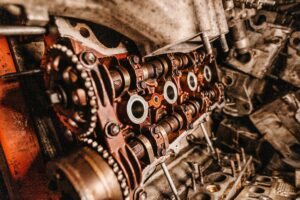How ERP Helps Solve Production Bottlenecks?
Manufacturing is obviously a fast industry even the slightest deviation on the shop floor can halt operations. Production bottlenecks, those frustrating situations where work unexpectedly slows or stops can ultimately result in delays, costs, and unhappy customers. Fortunately for manufacturers, top ERP systems can help solve that. ERP helps manufacturers eliminate stray work and keep production moving forward.
Understanding Bottlenecks in Manufacturing
A production bottleneck occurs when a certain stage in the manufacturing cannot get workload done quickly enough to keep everything operating optimally. The reasons it could be bottlenecking can be bad planning, machine downtime, or a lack of raw materials. Every bottleneck slows the pace down and creates a domino effect that inhibits schedules, increases costs, and decreases productivity
Here is where ERP comes in. The right ERP software enables an organization to unite different areas of your business, from inventory to sales to production, so everything runs smoothly.
How ERP Help Fix Bottleneck Issues?
Real-Time Data Visibility
When teams are not aware of the state of goods, orders, or equipment, delays are inevitable. ERP systems provide visibility in real time across virtually every aspect of production. You can catch issues early such as low inventory or overloading machines and respond quickly.
With this instant access to production metrics, managers can allocate resources more effectively, monitor shop floor performance with ease, and ensure that departments stay aligned to prevent workflow interruptions or sudden lags in production timelines due to poor communication or missed signals.
Better Production Planning
With an ERP program you gain powerful scheduling and planning features. The software can help you plan out your resources, catch order timing, and balance workloads. That means fewer surprises on the shop floor and smoother production cycles.
Incorporating historical data and forecasting tools, ERP allows manufacturers to anticipate demand, align workforce availability, and synchronize procurement. This results in enhanced productivity, proactive decision-making, reduced machine idle time, and better customer satisfaction through timely delivery of quality goods.
Inventory and Supply Chain Control
ERP makes it easier to manage materials and suppliers. You’ll always know what’s in stock, what’s running low, and when to reorder. Some ERP platforms even send automatic alerts when levels drop. This helps avoid delays caused by missing parts or late deliveries.
Furthermore, integrated supplier management ensures streamlined procurement cycles, optimizes vendor performance tracking, and reduces the risk of overstocking or understocking. ERP helps predict seasonal trends and align purchases with real-time production needs, creating a seamless flow of materials across the entire supply chain.
Workflow Automation
Manual processes slow things down. ERP automates routine tasks—like order processing, report generation, and quality checks—so your team can focus on what matters. Automation not only saves time but also reduces human error, which can be a hidden cause of bottlenecks.
One of the top ERP systems known for reducing production bottlenecks is SAP ERP. It offers advanced features like predictive analytics, IoT integration, and smart scheduling tools. These features help manufacturers predict delays before they happen and respond quickly, minimizing downtime and improving efficiency.
Choosing the Right ERP for Manufacturing
Manufacturing organizations often face different challenges; for example, require manufacturing ERP software that can accommodate these challenges. Manufacturing ERP software typically has capabilities that include bomb (BOM) tracking, shop floor control, and production costing, and other tools specifically designed to address the complexities manufacturing teams face as they face the real-world challenges of production.
When you buy robust manufacturing ERP software, you are not just buying software for your manufacturing organization; you are hiring a smart assistant to help your daily operations run efficiently. It tracks, manages, and optimizes every single step in your production line. You will identify where you are wasting materials, use better timelines, and produce better quality product.
Final Thoughts
Production bottlenecks are a common hurdle in any manufacturer’s life, but they don’t need to be a hindrance to your production. ERP systems allow manufacturers to identify, stop, and remove bottlenecks. You can choose from one of the best ERP systems on the market, or a specialized manufacturing ERP software, but the ultimate takeaway is to find one that suits your workflow and objectives.
With the right ERP software in place, your production line can run more quickly and intelligently with fewer halts.













